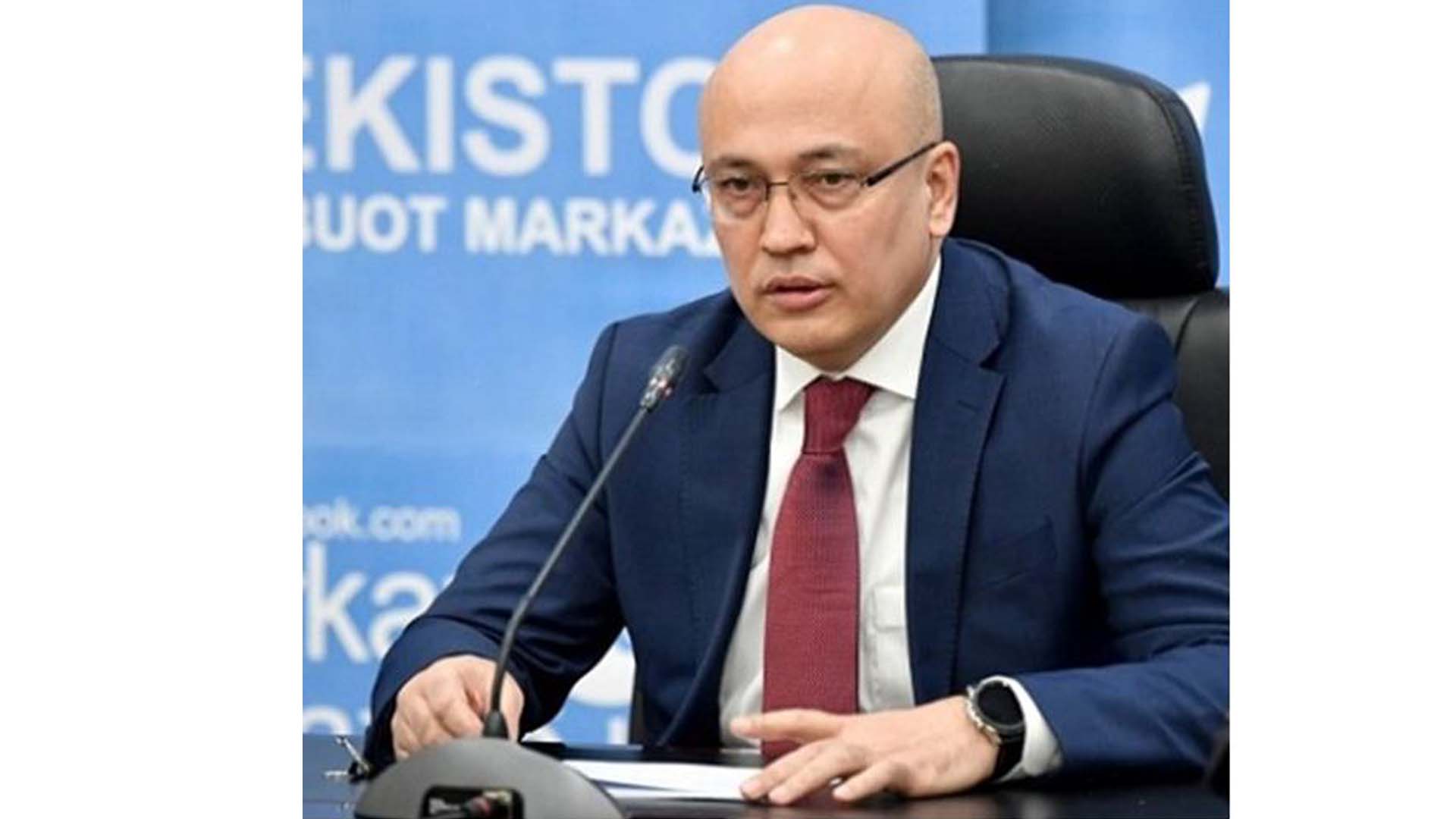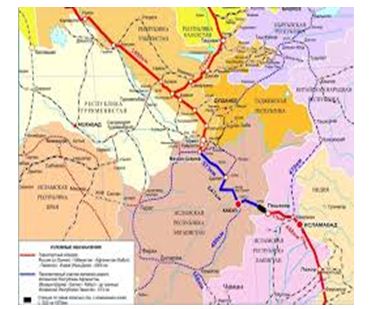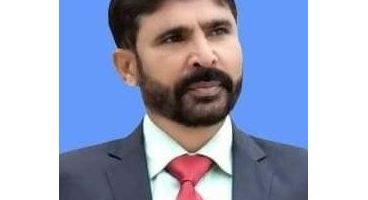Uzbekistan-Pakistan: Strengthening centuries-old ties and mutually beneficial cooperation

Furkat Sidikov
Pakistan is a developing agro-industrial country, the 24thlargest economy in the world in terms of GDP in PPP (2019). Today it is among the eleven states with the greatest potential to become one of the largest economies in the world in the21st century.
This is a country that, due to its enormous political, economic, military-technical and human potential, favorable geopolitical location, balanced foreign policy, is currently playing one of the leading roles in regional politics and solving major international issues.
Certainly, the comprehensive expansion of multifaceted mutually beneficial cooperation with Pakistan meets the interests of Uzbekistan, which today is at a new historical stage in its development. This was especially emphasized by President Shavkat Mirziyoyev in his Address to the OliyMajlis (Parliament).
History itself has created the preconditions for the establishment and strengthening of a fruitful dialogue between the two states at the present stage. The mutual acceptance of cultures and spirituality was facilitated by the emergence in the 16thcentury of a powerful empire on the territory of modern Pakistan, India, Bangladesh and southeastern Afghanistan, the founder of which was Zakhiriddin Muhammad Babur, a descendant of the great ancestor of the Uzbek people – Amir Temur. The richest cultural, historical and scientific heritage of that era will forever remain as the asset of present and future generations.
Today, the Embassies of the two states operate in capitals of Uzbekistan and Pakistan, which are establishedin May 1992to contribute to the dynamic development of bilateral relations. Friendship groups operate in parliaments of the two countries, and political dialogue at various levels is of a regular nature, which has recently become more and more dynamic.
The meetings of the President of Uzbekistan Shavkat Mirziyoyev, held within the framework of international events (the SCO and Organization of Islamic Cooperation summits) in 2017-2018 with the President of Pakistan Mamnun Hussain and Prime Minister Nawaz Sharif. On April 2019 in Beijing at the international forum “Belt and Road Initiative” and in June of the same year in Bishkek at the summit of the SCO heads of state, the head of Uzbekistan met with the Honorable Prime Minister of Pakistan Imran Khan are the testimony of above mentioned.

Both countries mutually support each other in the international arena, actively interacting within the framework of such international organizations as the UN, SCO and the Islamic Cooperation Organization.
The consistent development of Uzbek-Pakistani relations meets the long-term interests of not only our two countries, but also has a positive impact on strengthening security, developing trade, economic, communication and humanitarian ties in the region as a whole.
Thus, being immediate neighbors of Afghanistan and being equally interested in establishing peace and stability in this country, Uzbekistan and Pakistan are unanimous that the Afghan problem can be solved unambiguously exclusively through peaceful political negotiations under the auspices of the UN and an armistice of the opposing sides.

Today Tashkent and Islamabad are actively cooperating with Kabul in the implementation of joint economic and infrastructure projects that meet the interests of all three states. One of these is the project for the construction of the Mazar-i-Sharif-Kabul-Peshawar trans-Afghan railway, the prospects for which to become part of the New Silk Road have already taken shape.
There was a high-level meeting in early Februaryin Tashkent with the participation of delegations from Uzbekistan, Pakistan and Afghanistan, as well as representatives of international financial institutions to discuss this project, following which a joint Action Plan in this direction was adopted.
Undoubtedly, the construction of direct transport corridors between our countries will contribute to the expansion of mutual trade and economic ties and investment cooperation. They are developing quite intensively even today. Thus, at the end of 2020, Pakistan ranked 13thamong trading partners in terms of exports of products and services from Uzbekistan. This indicator in the specified period amounted to $98.5 million with a total volume of trade turnover of $123.3 million.
The Uzbek-Pakistani intergovernmental commission on trade, economic, scientific and technical cooperation, as well as the joint Business Council serve as effective platforms for resolving issues of bilateral cooperation in these areas.

It should also be noted that the number of joint and foreign enterprises with Pakistani capital in Uzbekistan has almost doubled over the past five years. Today it is more than 140 enterprises, including 4 with 100% foreign capital, which successfully operate in Uzbekistan in such areas as trade, light industry, paper production, leather goods and food products. In general, the total volume of Pakistani investments in the economy of Uzbekistan is currently $11 million.
During the visit of the delegation headed by the H.E. Deputy Prime Minister – Minister of Investments and Foreign Trade of Uzbekistan Mr.Sardor Umurzakov in September 2020 to Pakistan, matters of expanding cooperation in this area, as well as important issues of enhancing transport and logistics interaction were discussed. In Islamabadbilateral meetings were held with the Prime Minister of Pakistan Imran Khan, in the ministries and departments of Pakistan.
Another important event in the development of bilateral economic cooperation was the recent visit to Uzbekistan of a delegation led by H.E.Governorof Punjab, Muhammad Sarwar Chaudhary.
Honorable guests visited Namangan province, where matters of establishing interregional cooperation between Punjab and the Namangan region were discussed. During this visit,parties have signed an agreement on the establishment twin ship between the Namangan region and the Punjab province, the first interregional business forum “Namangan-Punjab”, as well as”B2G” and “B2B” talkswere conducted.
Relations in the cultural and humanitarian spheres between our countries are also consistently developing. Historical ties and common spiritual values of the Uzbek and Pakistani nations serve as a solid basis for this. Since the first days of independence, the Uzbekistan-Pakistan Friendship Society operating in Uzbekistan, contributing to the development of cultural and educational ties between the two nations, developing people to people contacts.
Along with this, representatives of the two countries actively participate in concerts, festivals, exhibitions and sports competitions held in Uzbekistan and Pakistan. In particular, Pakistani artists regularly participate in the Sharq Taronalari international music festival in Samarkand. In turn, Pakistan hosts scientific and practical conferences dedicated to the life and work of the great scientists and thinkers Abu Ali ibn Sino, Alisher Navoi and Zahiriddin Muhammad Babur.

In recent years, taking into account the potential of the countries in the field of pilgrimage, tourism, including pilgrimage tourism, has become an increasingly promising area of bilateral cooperation, which is of high mutual interest.
In 2020, the leader of Naqshbandiya H.E.Hasib ur-Rahman was appointed as the Ambassador of Ziyarat Tourism of Uzbekistan to Pakistan, and in 2019 the Information Tourism Center of our country was established. Before the pandemic, more than five thousand tourists and pilgrims have been visiting Uzbekistan every year. In 2020, despite the pandemic, almost a thousand travelers from Pakistan visited our country.
Thus, the current state and results of bilateral cooperation over the past almost 30 years will undoubtedly become a solid basis for building up cooperation in trade, economic, investment and transport and logistics spheres. Using the existing potential, Uzbekistan and Pakistan will not only be able to successfully overcome the economic consequences of the global crisis associated with the pandemic, but also make a worthy contribution to the economic development of Central and South Asia.
The writer is the Deputy Minister of Foreign Affairs of the Republic of Uzbekistan
Related News

The Future of the World
Dr. Muhammad Akram Zaheer The world stands at a difficult crossroads. Economic growth, once takenRead More

Vigilance Under the Banner of Peace
by Muhammad Mohsin Iqbal When Pakistan, alongside several Islamic nations, affixed its signature to theRead More


Comments are Closed